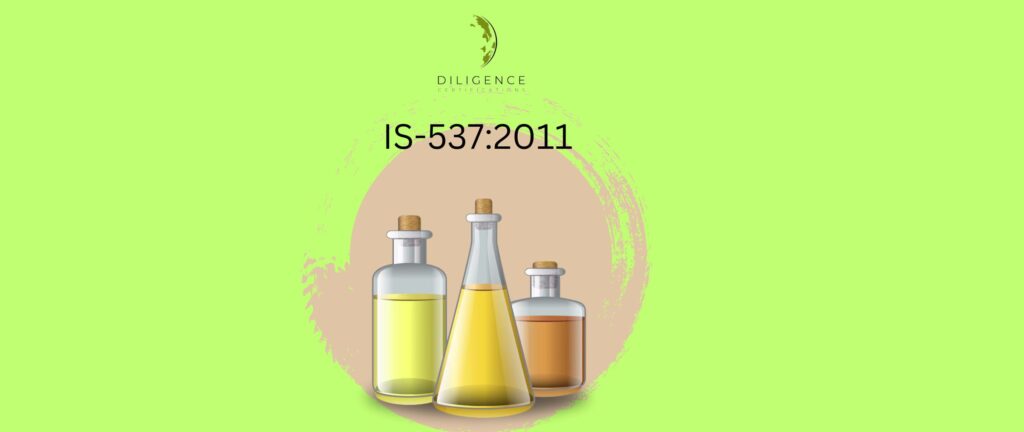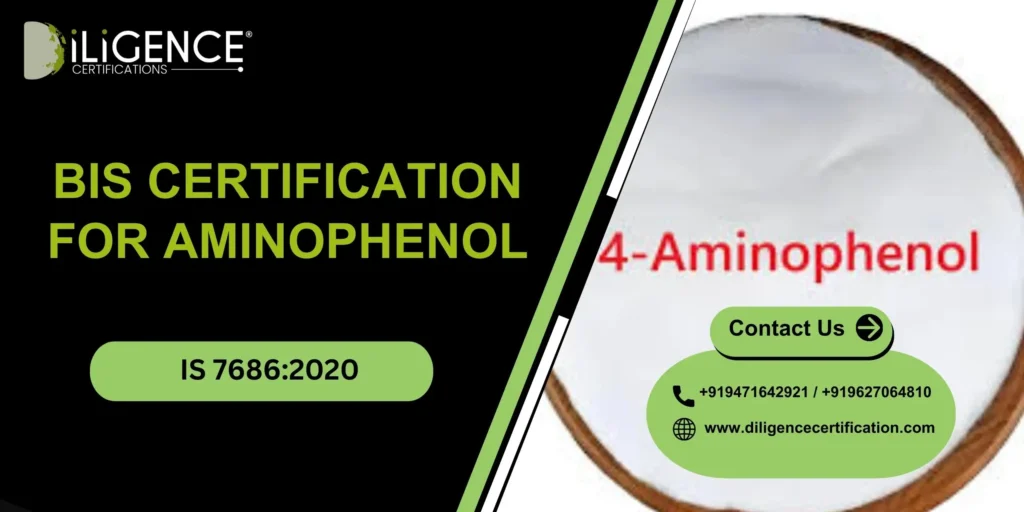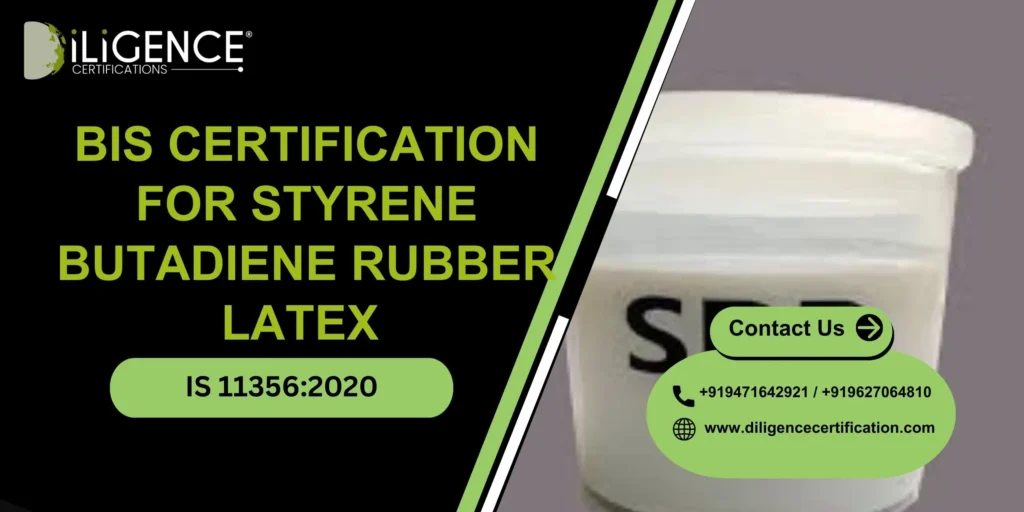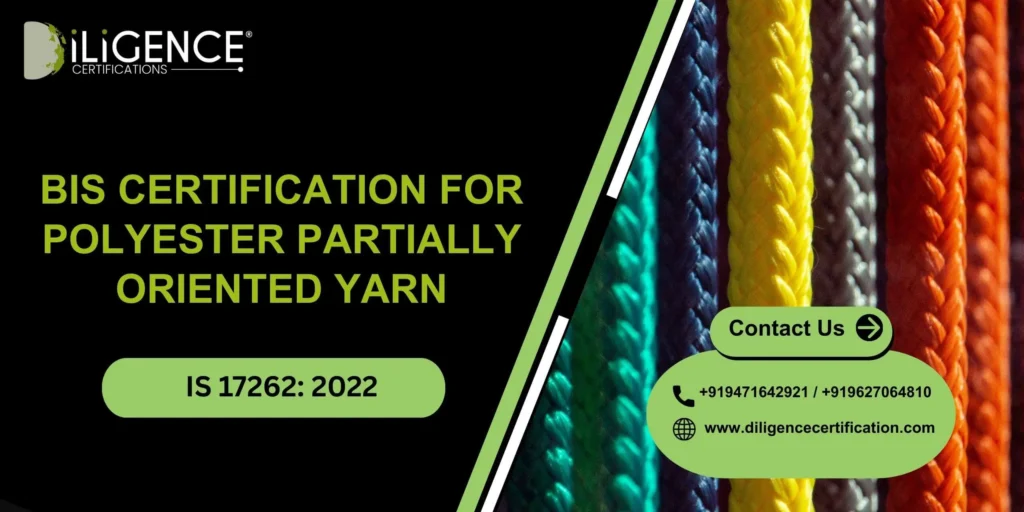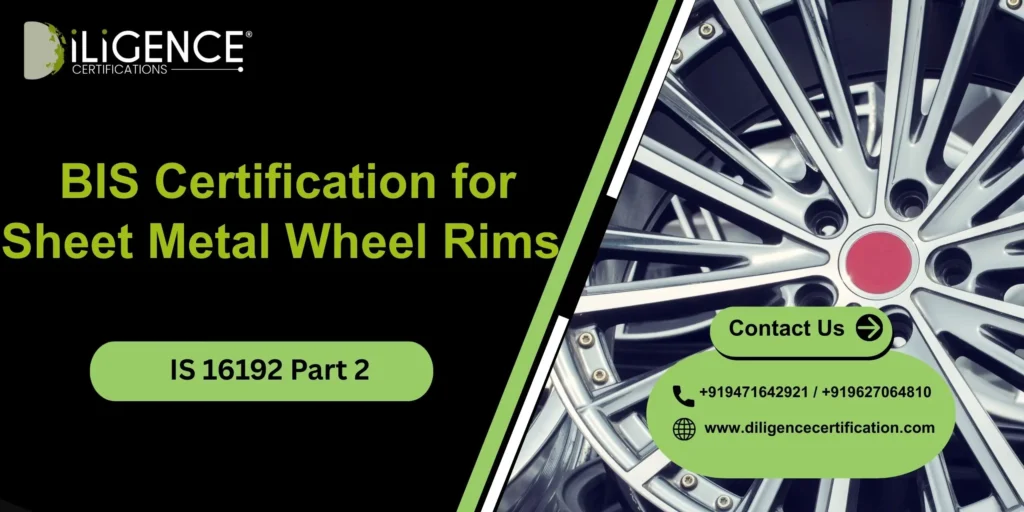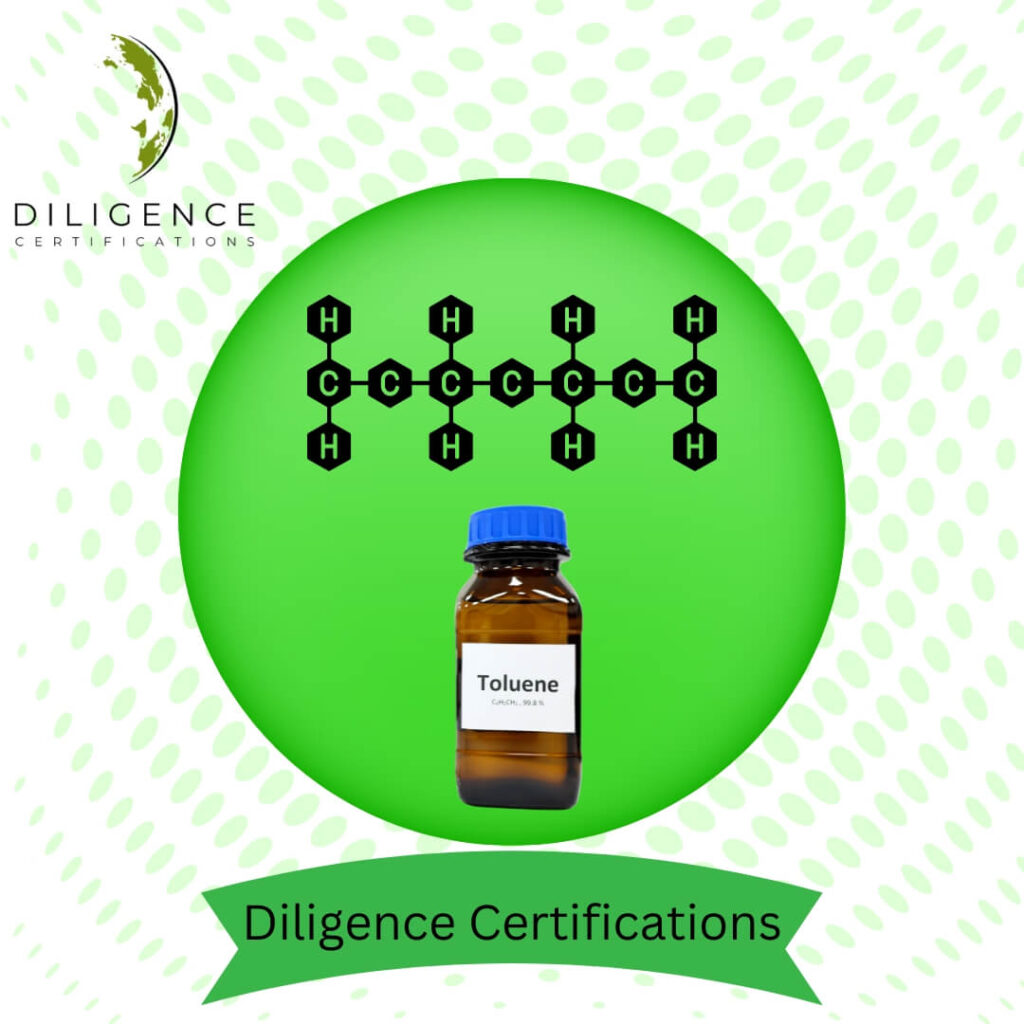
Introduction
Toluene, a clear, colorless liquid, is one of the most important industrial solvents and chemicals used globally. Known for its versatility and effectiveness in various applications, It is integral to industries ranging from paints and coatings to pharmaceuticals, automotive, and more. Diligence Certification offers Toluene that meets the highest industry standards, ensuring reliability, quality, and safety for all your business needs.
It is an essential chemical used in various industries, including paint, adhesives, rubber, and pharmaceuticals. To ensure the safety and quality of toluene products in the market, the Bureau of Indian Standards (BIS) has established the IS 537:2011 standard. Obtaining Toluene is crucial for manufacturers and suppliers to ensure compliance with regulatory requirements and enhance consumer trust. This blog by Diligence Certifications will guide you through the key aspects for Toluene, including the certification process, key highlights of IS 537:2011, and the necessary test equipment.
What is Toluene?
Toluene (C7H8), also known as methylbenzene, is an aromatic hydrocarbon widely used as a solvent and in the synthesis of other chemicals. Its excellent solvency properties, low vapor pressure, and ability to dissolve a wide range of substances make it an essential component in various industries. It is primarily derived from petroleum and natural gas and is commonly used in the production of paints, varnishes, lacquers, adhesives, and coatings. It is also utilized in manufacturing chemicals like benzene, xylene, and toluene diisocyanate (TDI).
Key Properties and Benefits of Toluene
- Effective Solvent: It’s primary characteristic is its ability to dissolve oils, resins, and various organic compounds, which makes it highly effective in paints, coatings, and adhesives. It is capable of breaking down and mixing with many substances that are insoluble in water.
- Volatility and Evaporation Rate: It evaporates quickly, which makes it ideal for use in industries where a fast-drying time is necessary, such as in paints, lacquers, and coatings. This feature helps manufacturers create smooth finishes and efficient production processes.
- Versatile Applications: Beyond its use in coatings and paints, It serves as an important raw material for the production of chemicals such as benzene and xylene. It is also used in the production of plastics, and pharmaceuticals, and as a fuel additive in the automotive industry.
- Chemical Stability: It is stable under normal conditions and does not react readily with air or water, making it safe for handling in most industrial processes. It does, however, need to be stored properly to avoid degradation over time.
- Safety Considerations: While It is generally safe for use in controlled environments, it is essential to follow safety protocols as exposure to high concentrations of Toluene can cause respiratory and neurological issues. Proper ventilation and personal protective equipment (PPE) should always be used when handling the chemical.
Key Highlights of IS 537:2011
The IS 537:2011 standard specifies the requirements and testing methods for toluene. Below are the key highlights:
| Feature | Description |
| Scope | Covers specifications for toluene used in industries. |
| Purity Requirements | Minimum purity of 99.5% by weight. |
| Impurities | Limits on sulfur, non-aromatic hydrocarbons, and water content. |
| Physical Properties | Specifications for color, density, and distillation range. |
| Testing Methods | Detailed procedures for testing purity and impurities. |
| Packaging and Marking | Guidelines for proper packaging and labeling. |
Applications of Toluene
The diverse range of properties of Toluene makes it indispensable across several industries:
- Paints and Coatings: It is a key ingredient in paint thinners and solvents used in automotive, industrial, and residential coatings. Its high solvency power ensures that paint formulations are easy to apply and dry quickly.
- Chemical Manufacturing: It is used in the production of other chemicals like benzene, xylene, and TDI (toluene diisocyanate), which are important in the production of polyurethane foams, plastics, and other industrial materials.
- Pharmaceuticals: It is used as a solvent in the pharmaceutical industry to manufacture various medications and extracts. It helps in the synthesis of active pharmaceutical ingredients (APIs) and other essential compounds.
- Adhesives and Sealants: The chemical is used in the formulation of adhesives and sealants due to its strong ability to break down and dissolve resins, making it a reliable component in the production of construction adhesives and industrial sealants.
- Automotive: In the automotive industry, It is often used as a fuel additive to enhance the performance of gasoline and to improve engine efficiency. It can also be found in the production of automotive paints and coatings.
BIS Certification Process
The several steps to ensure compliance with the IS 537:2011 standard. Here is a detailed overview:
- Application Submission
- Manufacturers must submit an application to BIS along with the required documents, including product details, manufacturing process, and quality control measures.
- Document Review
- BIS reviews the submitted documents to verify compliance with the standard requirements.
- Factory Inspection
- BIS officials conduct an on-site inspection of the manufacturing facility to assess the production process, quality control systems, and testing facilities.
- Sample Testing
- Samples of toluene are collected and tested in BIS-approved laboratories to ensure they meet the specifications outlined in IS 537:2011.
- Certification Grant
- Upon successful completion of the inspection and testing, BIS grants the certification, allowing the manufacturer to use the BIS Standard Mark on their product.
- Surveillance Audits
- Periodic audits are conducted by BIS to ensure ongoing compliance with the standard.

List of Test Equipment
Accurate testing is vital for obtaining BIS Certification for Toluene. Below is a list of essential test equipment required for compliance:
| Test Equipment | Purpose |
| Gas Chromatograph | Analyzes the purity and composition of toluene. |
| Distillation Apparatus | Determines the distillation range. |
| Colorimeter | Measures the color of toluene. |
| Sulphur Analyzer | Quantifies Sulphur content in the product. |
| Moisture Analyzer | Assesses the water content. |
| Density Meter | Measures the density of toluene. |
| Laboratory Glassware | Supports various chemical testing procedures. |
Scheme of Inspection and Testing
To ensure consistent product quality, manufacturers must implement a robust Scheme of Inspection and Testing (SIT). Below are the key components of an effective SIT:
Implement corrective measures promptly if any non-conformities are detected during testing or inspection.
Raw Material Inspection
Inspect raw materials to ensure they meet the specified quality standards before production.
In-Process Testing
Conduct regular checks during the production process to monitor parameters such as temperature, pressure, and purity levels.
Final Product Testing
Test the final product batch-wise to verify compliance with IS 537:2011 specifications.
Record Keeping
Maintain detailed records of all inspections, tests, and corrective actions for audit purposes.
How Diligence Certifications Can Help
Navigating the BIS Certification process can be challenging. Diligence Certifications offers expert guidance to help manufacturers streamline the certification process and ensure compliance with IS 537:2011. Our services include:
Training Programs: We conduct training sessions for your staff on quality control, testing procedures, and regulatory compliance.
Application Assistance: We assist in preparing and submitting the necessary documentation to BIS.
Factory Audit Preparation: Our team helps you prepare for the factory inspection by ensuring that your processes and facilities meet BIS requirements.
Testing Support: We provide access to BIS-approved laboratories for sample testing and help interpret test results.
Compliance Monitoring: We offer ongoing support to help you maintain compliance with BIS standards through regular audits and updates.
Conclusion
Obtaining BIS Certification for Toluene is crucial for manufacturers looking to ensure product quality and regulatory compliance. The IS 537:2011 standard sets stringent requirements for the purity and safety of toluene, making the certification process a vital step in your business operations. By partnering with Diligence Certifications, you can simplify the certification process, ensuring that your products meet the highest standards and gain a competitive edge in the market.


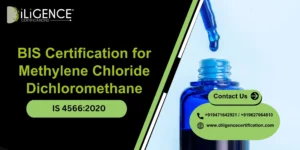
 BIS Certification
BIS Certification
 CDSCO
CDSCO
 CPCB
CPCB
 LMPC
LMPC
 WPC Approval
WPC Approval
 Global Approvals
Global Approvals
 TEC
TEC
 ARAI
ARAI
 BEE
BEE
 ISO Certification
ISO Certification
 Drone Registration
Drone Registration
 NOC For Steel
NOC For Steel



















 Business Registration
Business Registration














 Legal Services
Legal Services
 Trademark Registration
Trademark Registration
 Copyright Registration
Copyright Registration
 Patent Registration
Patent Registration
